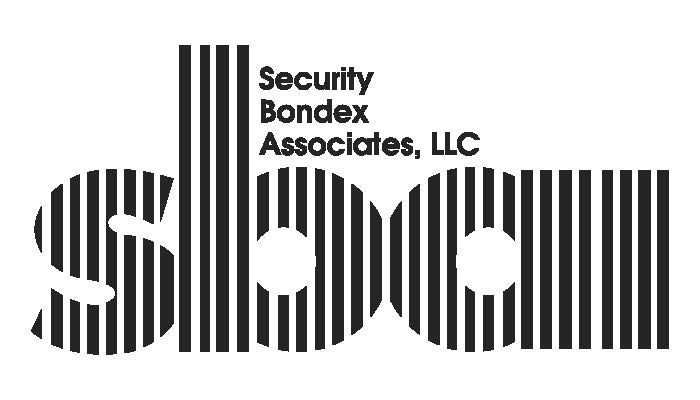FAQ
-
What is a Surety Bond?
It's a legal document that provides for monetary compensation should there be a failure to perform specified acts within a stated period.
-
Who are the three parties in a Surety Bond?
The parties are: 1. The Principal-the party that is bonded. 2. The Obligee-the party receiving the protection of the bond. 3. The Surety-the party making the guarantee through the bond.
-
What does the Surety Bond do?
It guarantees that the obligation of the Principal will be performed. If not, the Surety guarantees completion.
-
Who can be bonded under a Surety Bond?
Any individual, partnership or corporation that meets the standards and requirements of the Surety company.
-
How does a Surety company decide who to bond?
At SBAL we use something called the "3 C's"-character, capacity and capital. We decide based on the Principal's ability to do the work, past history of work performance and the financial position to carry out future work.
-
What kind of obligations can be bonded?
Nearly all types of obligations can be bonded. The most common are contractual performance of a service or payment of a sum of money.
-
Who benefits from a Surety Bond?
The party that purchases the bond, called the Principal, and the party that requires the bond, called the Obligee, share the benefits of the Surety's guarantee.
-
What would create a claim under a Bond?
The Principal's inability to fulfill the obligation covered by the bond.
-
What if a Surety company has to pay a claim?
A Principal is legally obligated through the Indemnity Agreement to reimburse the Surety company for any loss and expense incurred by the Surety. The Principal's obligation to the surety could exceed the original obligation to the Obligee. The Surety has recourse against the Principal in recovering the loss.
-
Who can make a claim under a bond?
In most cases, only the Obligee can make claims under a bond. The Principal can never make a claim.
-
Is a Surety Bond Insurance?
No! A Surety bond might be provided by the same companies that write insurance policies, but it is never considered insurance.
-
What are the types of Surety Bonds?
There are hundreds of Surety bonds. The most common are Bid, Performance, Payment, Sub-Division, License and Permit, Lost Instrument and Court Bonds.
-
What is a Fidelity Bond?
This bond covers losses that result from dishonest or fraudulent acts of employees covered by the bond.
-
Who would I call for all types of bonds?
Call an agency that specializes in bonding. One that knows all of the bond markets. One that can help you cut through the red tape. And one that does the job quickly. Bottom line, call Security Bondex Associates LLC-The "Bond Aid" People.

★★★★★
We have been getting our bond through Security Bond Associates for over 20 years. Everyone I have dealt with during this time has been more than helpful, knowledgeable and professional. Every year I know I can depend on them to process our bond in an efficient, timely manner. Wonderful people to work with!
Wynona D.

★★★★★
Security Bond Associates Inc. is the best family-operated company in Florida. They go above and beyond to ensure your bond is always active and offer amazing customer service. I highly recommend everyone bond with them.
Jordi G.

★★★★★
Excellent professionals! They made my bond very quickly and are willing to help. I recommend them.
Sara J.
★★★★★
This is the Greatest office you can work with, starting with Linda Vera de Castro, and her entire personnel and the owners. I've been doing Bussines with them over 23 yrs.. Truly they treat you like family. if I Can give them 100 stars if would be done.
Valdo Auto Sales
★★★★★
I've been using your company now for a long time. I used to use an out of state one, and it took forever to get my bond. I just have to show up at your office, pay and leave with my bond on hand. You guys are the best!!!!! 100% !!!!
Jorge E.
★★★★★
I want to express my utmost gratitude and appreciation for the outstanding service provided by Security Bond Associates Inc. Their dedication, professionalism, and commitment to ensuring my security needs were met exceeded all my expectations.
Hecney R.
★★★★★
Always a pleasure. Prompt attention, excellent, professional service.
Bruce R.
★★★★★
Always easy to work with, experts in their field.
Joseph C.
★★★★★
Awesome service!!!!! Helpful, knowledgeable staff. Thank you Odalis
AnaLuisa A.
★★★★★
We have been getting our bond through Security Bond Associates for over 20 years. Everyone I have dealt with during this time has been more than helpful, knowledgeable and professional. Every year I know I can depend on them to process our bond in an efficient, timely manner. Wonderful people to work with!
Wynona D.
★★★★★
Security Bond Associates Inc. is the best family-operated company in Florida. They go above and beyond to ensure your bond is always active and offer amazing customer service. I highly recommend everyone bond with them.
Jordi G.

★★★★★
We have been getting our bond through Security Bond Associates for over 20 years. Everyone I have dealt with during this time has been more than helpful, knowledgeable and professional. Every year I know I can depend on them to process our bond in an efficient, timely manner. Wonderful people to work with!
Wynona D.

★★★★★
Security Bond Associates Inc. is the best family-operated company in Florida. They go above and beyond to ensure your bond is always active and offer amazing customer service. I highly recommend everyone bond with them.
Jordi G.

★★★★★
Excellent professionals! They made my bond very quickly and are willing to help. I recommend them.
Sara J.
★★★★★
This is the Greatest office you can work with, starting with Linda Vera de Castro, and her entire personnel and the owners. I've been doing Bussines with them over 23 yrs.. Truly they treat you like family. if I Can give them 100 stars if would be done.
Valdo Auto Sales
★★★★★
I've been using your company now for a long time. I used to use an out of state one, and it took forever to get my bond. I just have to show up at your office, pay and leave with my bond on hand. You guys are the best!!!!! 100% !!!!
Jorge E.
★★★★★
I want to express my utmost gratitude and appreciation for the outstanding service provided by Security Bond Associates Inc. Their dedication, professionalism, and commitment to ensuring my security needs were met exceeded all my expectations.
Hecney R.
★★★★★
Always a pleasure. Prompt attention, excellent, professional service.
Bruce R.
★★★★★
Always easy to work with, experts in their field.
Joseph C.
★★★★★
Awesome service!!!!! Helpful, knowledgeable staff. Thank you Odalis
AnaLuisa A.
★★★★★
We have been getting our bond through Security Bond Associates for over 20 years. Everyone I have dealt with during this time has been more than helpful, knowledgeable and professional. Every year I know I can depend on them to process our bond in an efficient, timely manner. Wonderful people to work with!
Wynona D.
★★★★★
Security Bond Associates Inc. is the best family-operated company in Florida. They go above and beyond to ensure your bond is always active and offer amazing customer service. I highly recommend everyone bond with them.
Jordi G.
We will get back to you as soon as possible.
Please try again later.








